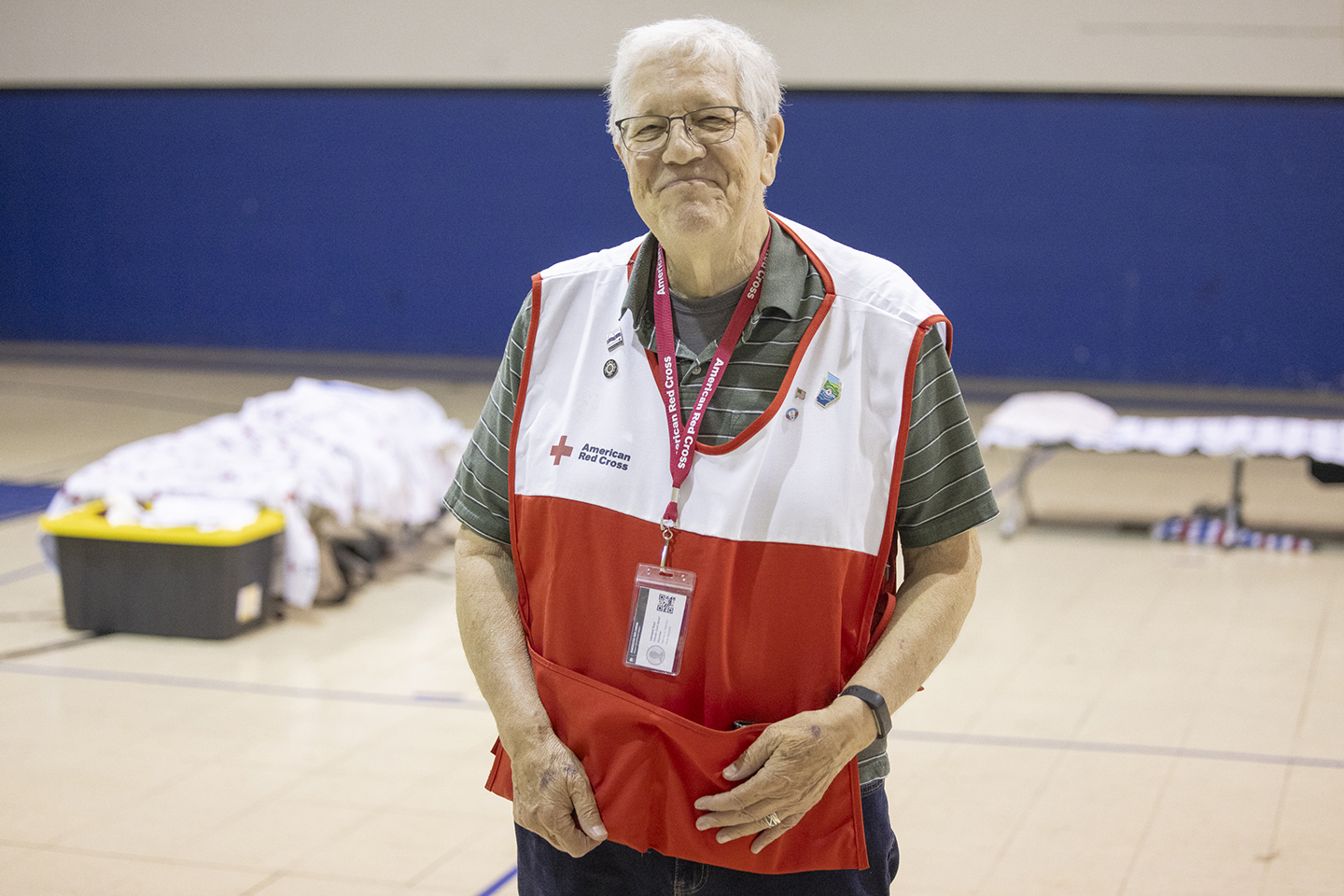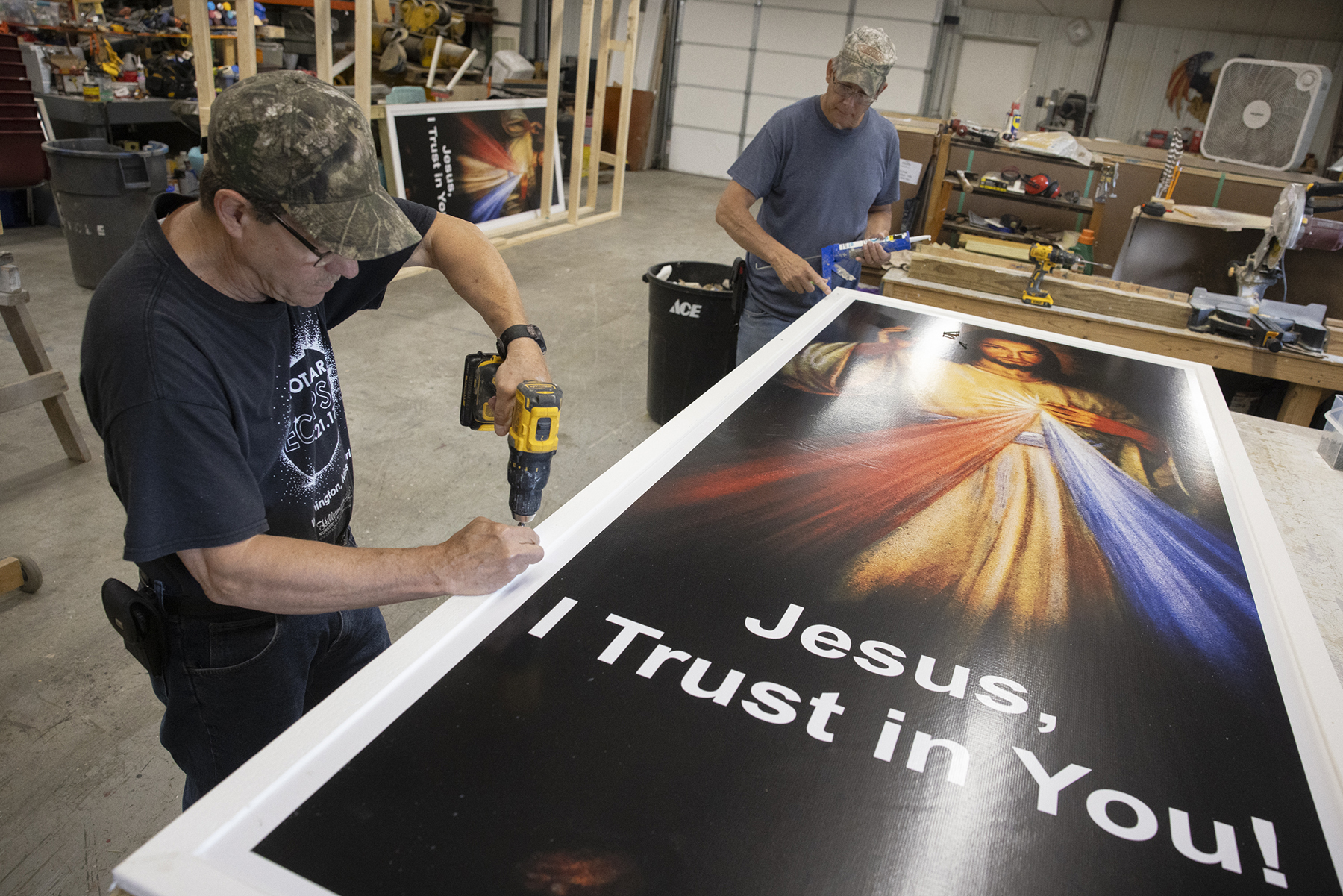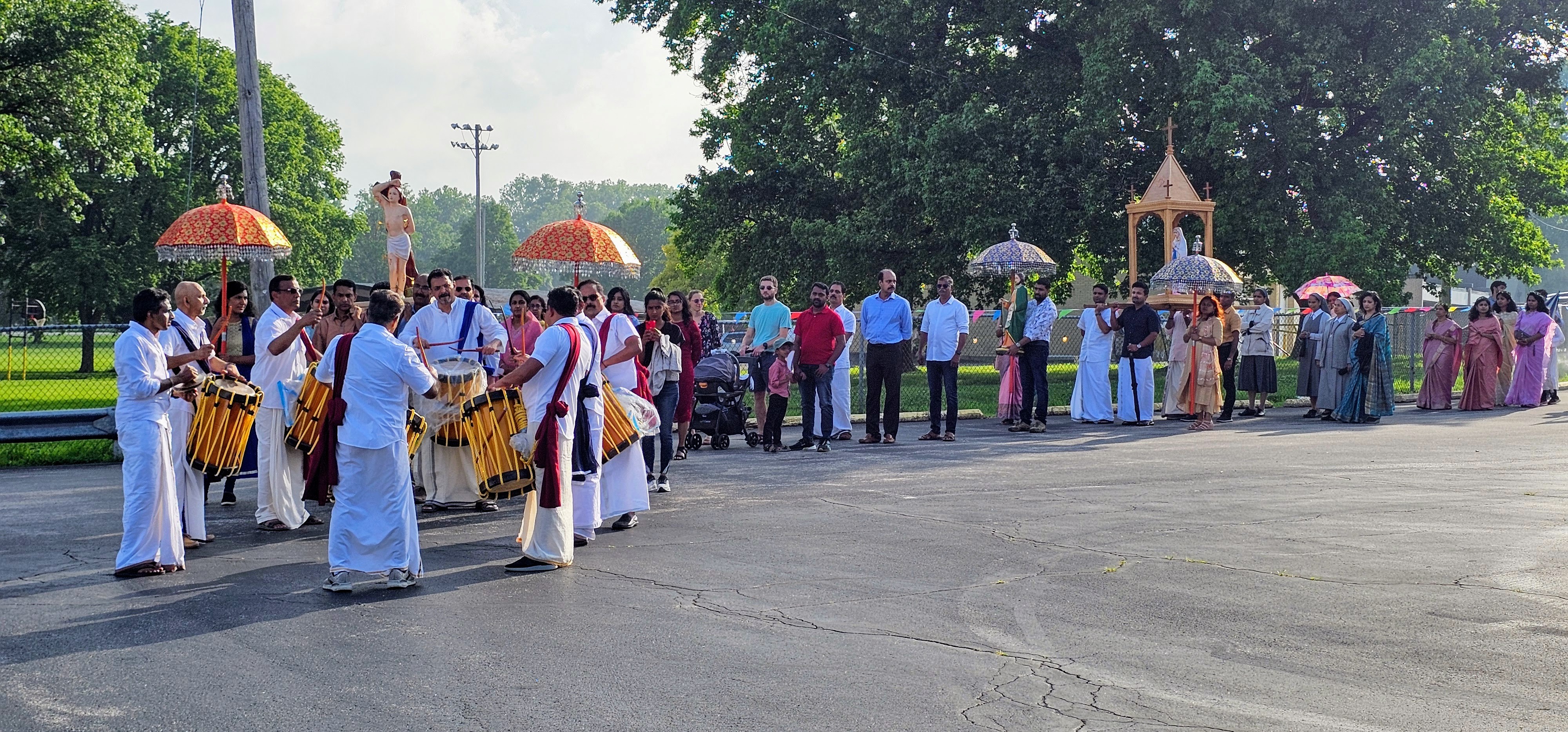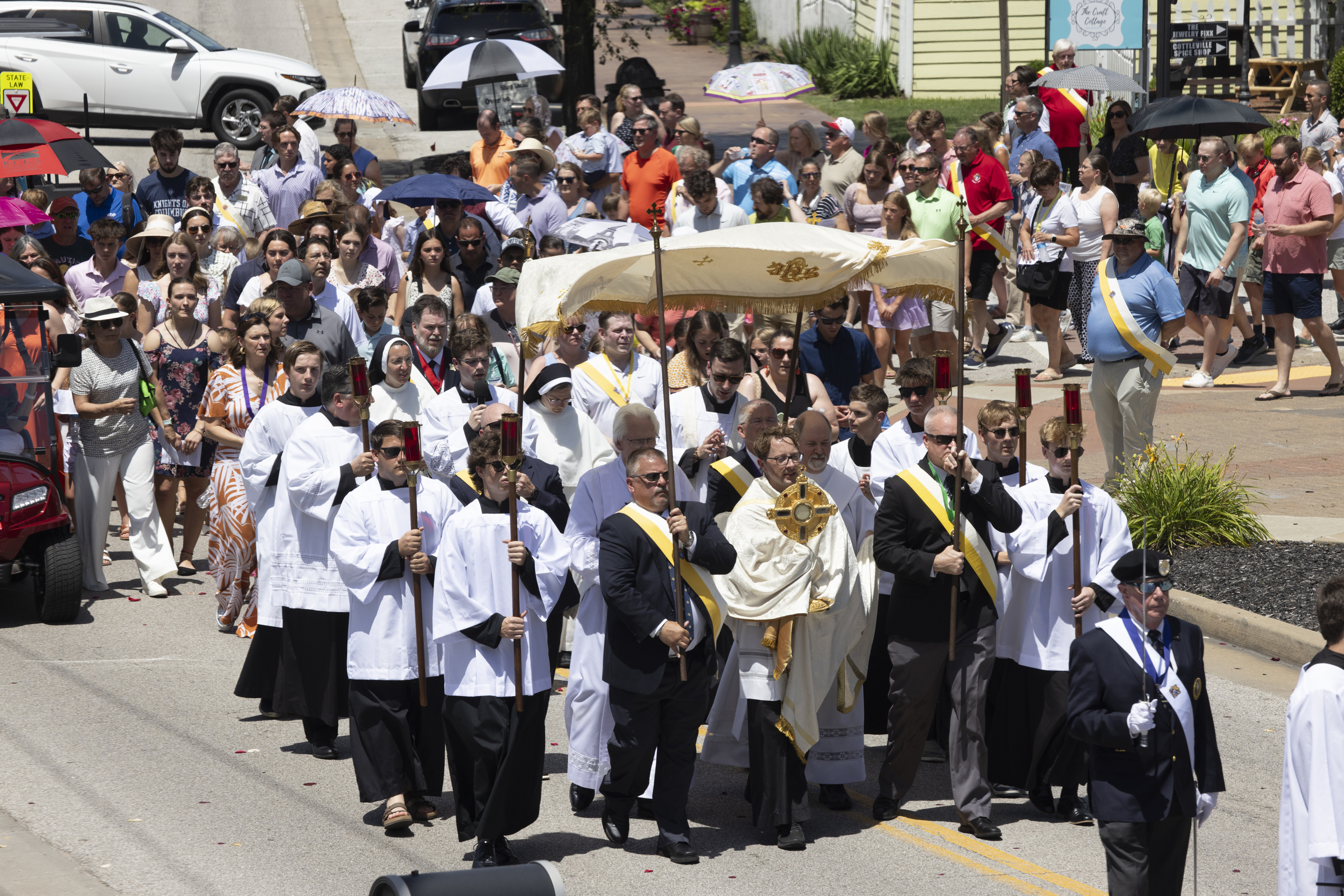Conversation on implicit bias stresses impact it has on the entire community
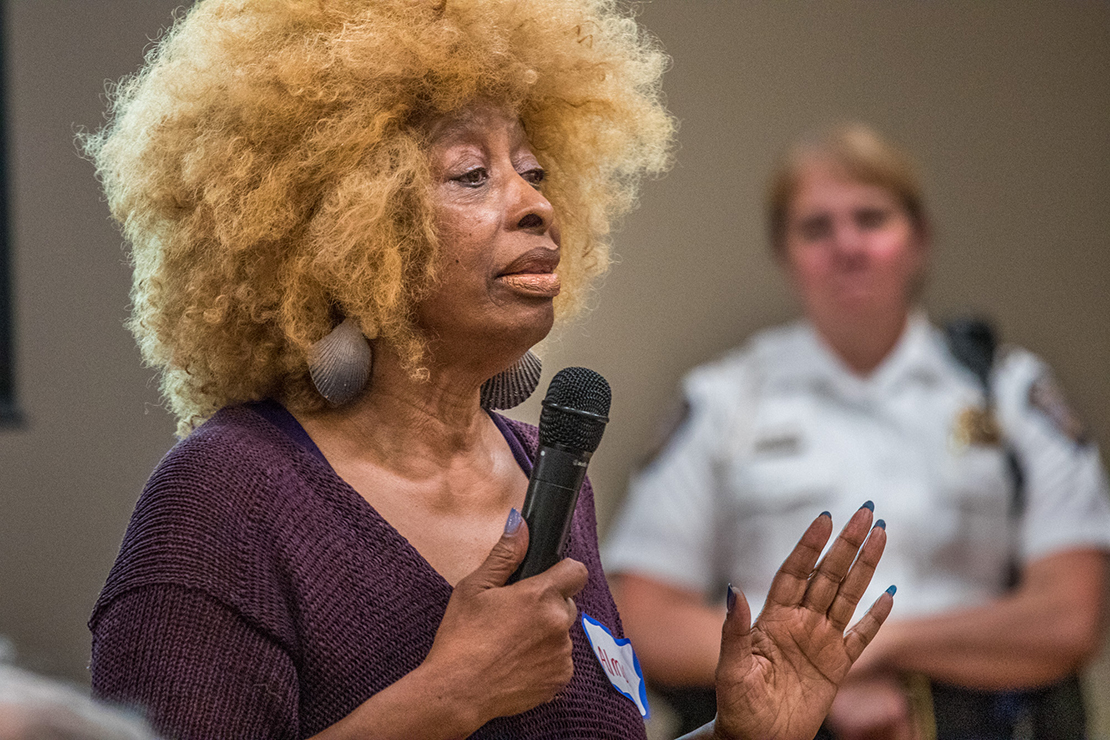
Police from Ellisville, Chesterfield lead talk July 31 at Incarnate Word
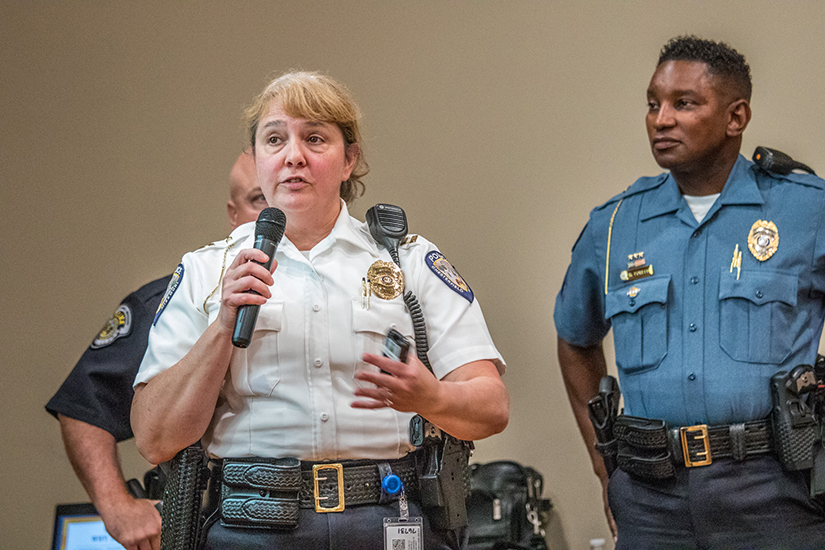
When Alma Scarborough was a young girl, she went along with her class to the Fox Theatre. It was prior to the 1954 Brown vs. Board of Education decision that desegregated schools. Segregation was still common in most parts of the city — so as an African-American, Alma wasn’t allowed inside the Fox. Her teacher made her stand outside for two hours while the rest of the class went inside to see the show.
It was an explicit example of the segregation that many people of color experienced during that time.
Scarborough shared her testimony at a conversation on implicit bias July 31 at Incarnate Word Parish in Chesterfield. The event was hosted by several community organizations, including Social Justice 4 All, West County Community Action Network and Incarnate Word’s Peace and Justice Ministry.
Scarborough, now a tax consultant, recently attended a professional conference, where she was invited to serve on the organization’s board of directors. When it came time for the new board members to be recognized, her name was’t mentioned.
Scarborough confronted the woman who had invited her. “I said, ‘What happened that I did not get on the board?’ She said, ‘Oh, did you really want to get on the board?’ I said, ‘Don’t get carried away with white privilege — you know we talked about this.’ She said, ‘Alma, I just must have misunderstood you.’ I said, ‘You’re going to have to rid yourself of the slave mentality where you tell me what I thought.’”
Capt. Cheryl Funkhouser, from the Chesterfield Police Department, and other representatives from Chesterfield and Ellisville police departments led the conversation, including a look at the unconscious bias training in which they’ve participated through the national Fair & Impartial Policing training program. Since 2017, the Missouri Department of Public Safety has mandated that all police departments participate in bias training, though many of them, including Ellisville and Chesterfield, have been doing that long before the mandate.
Funkhouser defined implicit bias as “the attitudes and stereotypes that affect our understanding, actions and decisions in an unconscious manner. It’s those split-second decisions you make about people or things or situations that are different than what you are used to experiencing, or different from what you know,” she said. Biases are formed through what we read and see, personal experiences and even familial upbringing.
Chesterfield Captain Ed Nestor noted the use of force and racial profiling are taken “very seriously” within the department, with routine review of procedures — and, when mistakes are made, discipline of officers.
Police have to make quick decisions, while also keeping in the balance the safety of the community and protection of officers as top priorities. Nestor stressed that understanding bias is “not the kind of thing you can do in one meeting, or that we can do in one training. We have been working as a police department on this since our inception 30 years ago. It’s stuff that you have to keep working on and reminding yourself. So much of this is in society today.”
Police departments aren’t the only ones looking at unconscious bias training. Employers including Starbucks, Schnucks and Nordstrom Rack have turned toward the training to help employees become aware of ingrained biases and develop strategies to help them manage their actions toward customers.
Not long after the events in Ferguson in 2014, the St. Louis County Police began offering implicit bias training. Sgt. John Wall, now basic training supervisor, was appointed as liaison between the police department and the Department of Justice as part of a review of the department’s policies and procedures. Wall was recognized for lowering the rifle of a St. Ann officer who pointed it at protesters and cursed at them during a demonstration in 2014. (The officer was suspended and later resigned.)
Wall, who has undergone leader training to train other officers, noted that it has an impact on remaining fair in his work, “and to do my job the way it was meant to be done. It helps you on the broader spectrum of bringing that sense of humanity back to the officer. In our profession, just like a doctor, nobody calls when something good happens. You’re dealing with pain and misery all day long, and this helps in developing empathy.”
Ellisville Chief Steve Lewis noted that biases can be managed by education through “contact theory” — a concept in which you increase interactions with people different from you. “In other words, the more contact I have with someone of another culture, another race, another religion, another idea set, the more I start to tell myself, they’re normal,” he said. “All of a sudden those implicit biases I’ve struggled with my entire life go away because now I am identifying a certain group of people with that positive experience.”
Resources on implicit bias
University of California, San Francisco, Office of Diversity and Outreach: bit.ly/2emVpom
Harvard University, “Project Implicit”: bit.ly/1m808ph
Fair & Impartial Policing Program: www.fairandimpartialpolicing.com
New York Times series on race and bias: nyti.ms/2nOOHM6
>> Tips on decreasing implicit bias
• Volunteer or work on a project with a community different than yours
• Attend a church with different cultural traditions
• Participate in teaching English as a Second Language classes
• Challenge yourself to invite other people into a discussion who don’t yet recognize their own implicit bias
• Develop meaningful relationships with people of other races and cultures — avoid a “tourist” mentality
• Attend a community event such as Touchy Topics Tuesdays (www.touchytopicstuesday.com) or get involved with organizations like Social Justice 4 All (www.socialjustice4all.org)
Captain Cheryl Funkhouser of the Chesterfield Police Department joined leaders from the Chesterfield and Ellisville police departments in sharing information on their training on how unconscious stereotypes influence judgments. Funkhouser … Conversation on implicit bias stresses impact it has on the entire community
Subscribe to Read All St. Louis Review Stories
All readers receive 5 stories to read free per month. After that, readers will need to be logged in.
If you are currently receive the St. Louis Review at your home or office, please send your name and address (and subscriber id if you know it) to subscriptions@stlouisreview.com to get your login information.
If you are not currently a subscriber to the St. Louis Review, please contact subscriptions@stlouisreview.com for information on how to subscribe.



